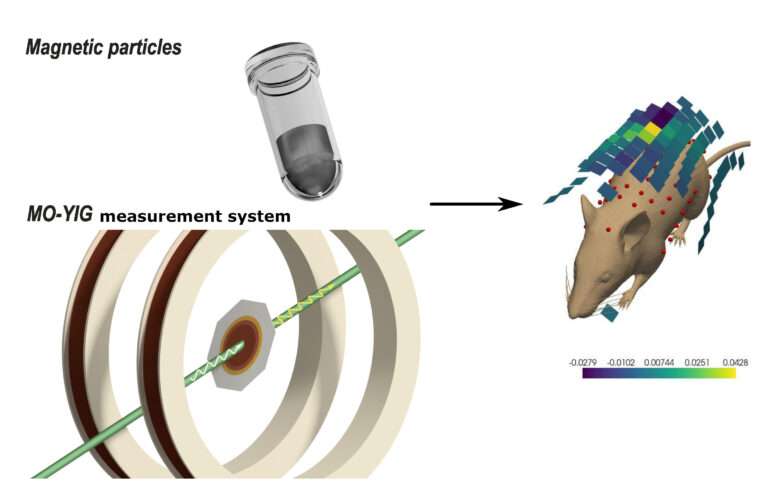Methods based on the application of magnetic micro- and nanoparticles constitute a rapidly advancing field, gaining increasing popularity, particularly in the realms of biology and medicine, owing to the transparency of biological tissues to magnetic fields. However, these methods are highly demanding of sensors and necessitate the development of magnetometric probes. The objective of this article is to investigate a novel type of highly sensitive magnetometer based on yttrium-iron garnet films for magnetorelaxometry and theranostics.
We have introduced and experimentally validated the applicability of a new type of magnetic sensors—a solid-state sensor based on yttrium-iron garnet, operating utilizing the Faraday effect. The use of the Faraday effect potentially mitigates the influence of domains formed at the edges of the film due to defects in its production, thereby enhancing the sensor’s sensitivity. Data processing was conducted using statistical methods.
To determine the system sensitivity and data processing method, tests were conducted using test coils, allowing the determination of the sensor sensitivity in the 0-5 kHz range to be approximately 35 pT/sqrt{Hz}. Sensitivity tests with sample tubes enabled the detection of particles of about 25 ng of iron oxide. Further tests conducted in an in vivo paradigm confidently identified the injection site of a 1 mg iron oxide solution in a laboratory mouse.
This study represents the first exploration of the applicability of solid-state sensors based on yttrium-iron garnet for biological magnetorelaxometry and theranostics. Future plans include substantial advancements in both hardware and mathematical methods for the registration and analysis of magnetorelaxometric curves in medical and biological contexts.

